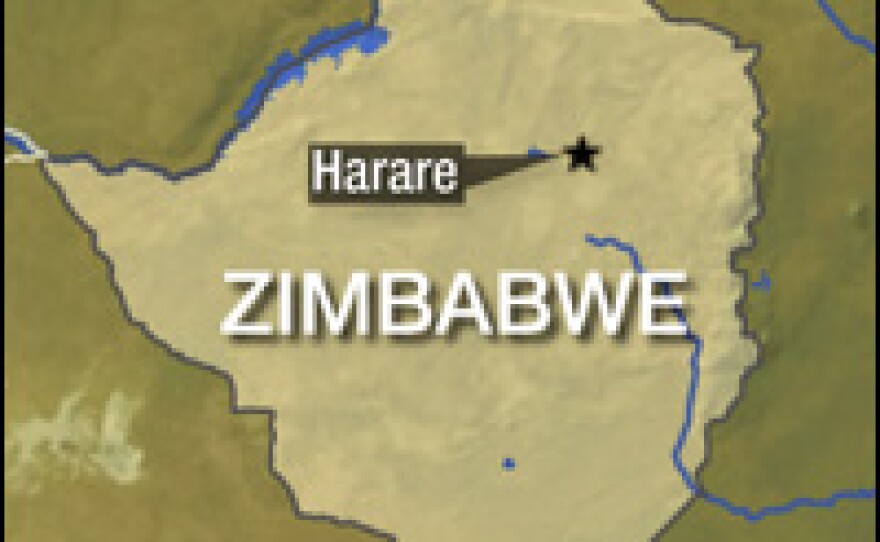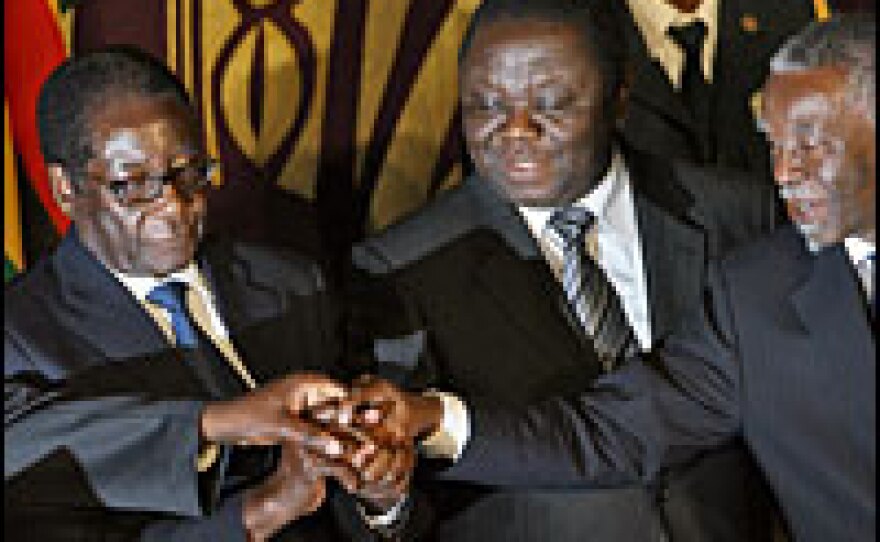
Robert Mugabe has loosened his grip on Zimbabwe after 28 years in power and months of political crisis. Today, Mugabe signed a power-sharing agreement with his rival, Morgan Tsvangirai.
Mugabe will remain president and Tsvangirai will become prime minister. Both sides pledged to put conflict behind them at a ceremony in the capital, Harare.
A praise singer performed as African leaders filed into the conference center to witness the landmark signing of the power-sharing agreement between Mugabe and his former opponents, Tsvangirai of the main Movement for Democratic Change, and Arthur Mutambara, head of a breakaway faction. Mutambara is the new deputy prime minister.
A Seven-Week Process
South African President Thabo Mbeki introduced the new leadership as he ushered them into the signing ceremony.
Mbeki brokered the deal after seven long weeks of negotiations to reach a consensus on how power would be shared in Zimbabwe. The talks came after a disputed presidential vote in March, followed by months of violence and intimidation, and by a run-off presidential election in June that was boycotted by the opposition.
Mugabe stood as the only candidate in the one-man show and defiantly threatened that only God would remove him from office. Today, he adopted a more conciliatory tone and called for unity.
"We have been walking the same route, without knowing it or not recognizing each other," Mugabe said. "After all, we are both Zimbabweans. We are all Zimbabweans. It's the first time you're coming into government. And so we will have that readiness to provide experience where we can provide it, because you don't start from nothing."
Mugabe's offer to share his experience with Tsvangirai, the new prime minister, did not go down well — he was jeered by Tsvangirai's supporters and many other Zimbabweans who point to the disastrous state of the economy and land reform.
Calls For Unity
Tsvangirai called on his compatriots to look ahead and work together to rebuild Zimbabwe.
"Divisions, polarization and hatred belong to the past," Tsvangirai said. "With the commitment of this new government to build a better country, with the commitment of all Zimbabweans to work together for a brighter future, our success is guaranteed."
But Tsvangirai also had a warning.
"The world has too many examples of when a people are driven by past wrongs rather than future glory," Tsvangirai said. "I have chosen to be guided by hope, and if you join me in this, we will not fail to witness the rebirth of our nation."
Now that Zimbabwe's rivals have signed on the dotted line and agreed to share power, certain items will become the priority — jockeying over Cabinet posts, rewriting the constitution and tough bargaining over control of key security agencies.
The deal is just the first important step. The real work begins now to prove that this is a genuine, workable agreement. That would open the way for the lifting of sanctions and renewal of funds from the international community and institutions that have as good as given up on Mugabe as a pariah leader in the past 10 years.
Until then, the guarded welcome from the West for an African solution to an African problem is likely to remain muted.
Copyright 2022 NPR. To see more, visit https://www.npr.org. 9(MDAzMjM2NDYzMDEyMzc1Njk5NjAxNzY3OQ001))







